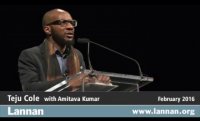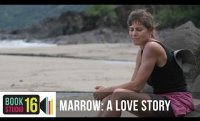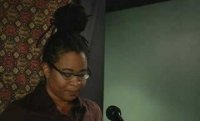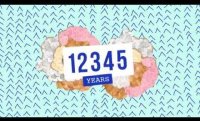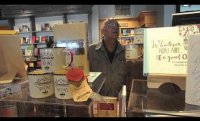Poets & Writers' sixth annual Los Angeles Connecting Cultures Reading took place on June 30, 2016, before a packed house at Beyond Baroque Literary/Arts Center. Ten writers representing P&W–supported organizations Beyond Baroque, the Los Angeles Poet Society, Mixed Remixed Festival, QueerWise, and the Roots and Wings Project came together to celebrate the diversity of the SoCal literary community and Poets & Writers' Readings & Workshops program. Readings & Workshops (West) program associate Brandi Spaethe blogs about this lively annual event.

This past June, Connecting Cultures marked its sixth year celebrating the Los Angeles literary scene with a diverse group of voices and work. It feels like each year grows in power—with these organizations continuing to cultivate and support writing that’s unique, emerging, and all-around stunning. At the reception before the reading, I witnessed, and gladly participated in, rounds of hugging, handshaking, and wide smiles. We come to these spaces to let ourselves share what makes us human and this reading was no exception.
If only we could replace traffic citations
with love tickets, demanding
that one be more affectionate with their children.
If only there was a love meter you had to feed
every hour, or a
love-station where
the trains are never on time
but nobody cares because they're
all listening to
their love-pods or
updating their status on Lovebook.
Armine Iknadossian, representing literary organization and host for the event, Beyond Baroque, opened the night with the above lines from her poem “United States of Love” from her collection United States of Love and Other Poems. Beyond Baroque serves the Venice and larger West Los Angeles community through a long-standing free workshop series and a generous list of events and readings throughout the year.
The ever-elegant Dorothy Randall Gray brought a walking stick she had rescued and read a poem inspired by it—a kind of found art ekphrastic piece. She represented the Los Angeles Poet Society, an organization a few years old and dedicated to bringing people in the literary community together. The outreach and pure positive energy that project directors Jessica Wilson-Cardenas and Juan Cardenas give to the community is what keeps this organization strong.
Jackson Bliss, first runner-up for the Poets & Writers' 2013 California Writer's Exchange Award in fiction, represented the Mixed Remixed Festival by bowling us over with his moving words: “Siddhartha watched the silent miracle of correspondence unfolding before his eyes and wondered how many countries the postman carried in his hands today, how many miles his envelopes had traveled to inhabit aluminum boxes, where one day they would hibernate forever inside old shoeboxes, spongy minds, and expansive landfills. It seemed like such a waste of language.” The Mixed Remixed Festival is the nation's premiere cultural arts festival celebrating stories of the Mixed experience, multiracial and multicultural families and individuals, through films, books, and performance.

There isn’t enough room in a small blog post to give you the power from all the voices in attendance. Like from QueerWise, a group of queer, senior spoken-word performers who brought Randy Gravelle and Jen OConnor to the stage, gifting us with stories of being queer in this world from perspectives reaching far back beyond our time of growing acceptance and celebration of queer lives and identities.
The young writer who closed the night, and who had been at this reading two years earlier representing 826LA, was the Roots and Wings Project’s very own Laura Davila, who delivered a poem responding to the part of the world that sees her blindness as a burden. “How brave you are,” she mimicked the voices she heard around her or “I wonder what it’s like to get up in the morning for you,” as if she was somehow missing something. “People reduce me to some pair of ‘broken eyes’ / as if sight is the only way to experience / the world.” Hardly a dry eye stood in applause with the closing of Davila's poem, which capped a reading where every voice, unique and explorative in its own right, gave us something honest and vulnerable and necessary.
Photo (top): Los Angeles Connecting Cultures group. Front (L-R): Jamie Moore, Patricia Zamorano, Brandi M Spaethe. Back (L-R): Heidi Durrow, Joe Levy, Jackson Bliss, Jesse Bliss, Laura Davila, Jen OConnor, Kalpna Singh-Chitnis, Richard Modiano, Dorothy Randall Gray, Norman Molesko, Jessica Wilson Cardenas. Photo credit: Jamie FitzGerald. Photo (bottom): Laura Davila. Photo credit: Brandi M. Spaethe.
Major support for Readings & Workshops in California is provided by the James Irvine Foundation and the Hearst Foundations. Additional support comes from the Friends of Poets & Writers.





